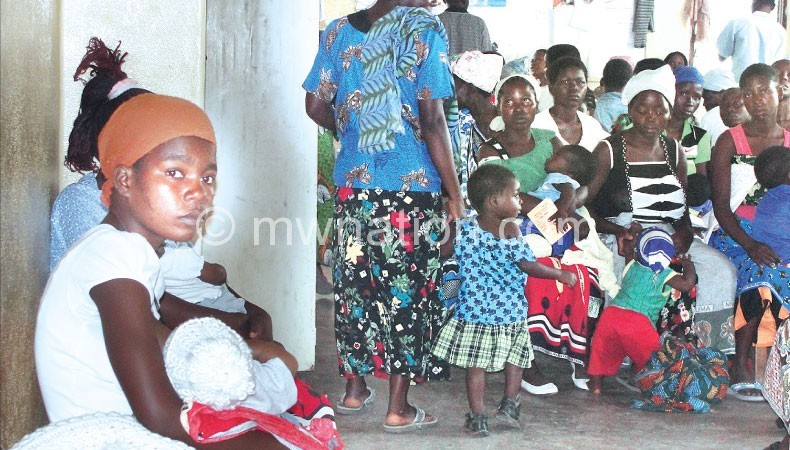Scrutinising Malawi’s health financing reforms
Shortage. Poor. Inadequate. Unsatisfactory. High ratios. Increased burden. Surprised? Do not be.
These are just some of the many words used to describe the country’s public health sector. They are negative words that best capture the appalling condition of the health sector that even failed to save the life of former president the late Bingu wa Mutharika after he fell sick in April 2012.

Experts warn that unless these negative words are reversed, the sector will always remain where it is: down.
The journey to reverse this negative trend, some experts note, begins with revisiting health financing in Malawi.
The image of health financing, arguably, is quite disturbing. For instance, the Ministry of Health had, in the 2014/15 fiscal year, projected a total health expenditure of K274 billion to function effectively. However, Parliament in the 2014/15 revised K780 billion national budget allocated K69 billion to the ministry.
Of course, there are always donors to complement the deficit. However, donors, too, have limitations.
These trends, possibly, are telling Malawians to find domestic ways of financing its health sector. This is why government, in its health reforms programme, proposed various reforms including the scaling up of health financing.
Among others, government proposes to revitalise medical insurance scheme alongside the expansion of paying services in public hospitals and also establish a health fund.
On revitalising the medical insurance scheme and expansion of the paying system, government says it proposes to introduce medical insurance schemes for those in wage employment (those who are on salary and pay tax to Malawi Revenue Authority), beginning with public servants while simultaneously expanding paying services in public facilities.
According to the proposal, the expected result would be additional revenues from the paying services which will be used to improve healthcare services across the board and resources will be managed by the health fund.
On the health fund, government, in their proposal, says it has set up a task force to “review all knowledge around this subject internally and externally and advise on the specifics of this fund such as the sources of revenues, organisational structure, operating principles of the fund, including the management and oversight structures of this institution”. The expected result, they argue, is increased resources generated towards the health fund.
However, despite these proposals that aim at scaling up health financing, government also makes another proposal which will scale up the cost of health financing. Something like giving and taking back.
Government also wants to review the current Memorandum of Understanding (MoU) with Christian Health Association of Malawi (Cham) so that government covers all the costs of delivering the essential health package for free in facilities that are outside an eight-kilometre radius from a government facility.
They propose that this will “allow clients that are in Cham catchment areas to access free health care in non-paying sections of the eligible Cham facilities”.
The expected result, they advance, is to have increased access to free health care for all Malawians despite living in areas where there is only a Cham facility.
With paying user fees in government hospitals only targeting the few that, mostly, already pay, is the government proposal really going to help scale up health financing?
The argument is that what is missing from the proposals is the idea—which some have advocated for years—of a compulsory paying system in government hospitals.
Having compulsory paying system in governmental hospitals, experts note, is based on the proposition that it is better for the poor to pay user charges to obtain the care they need, including drugs, than go to a private market where the costs are invariably higher and treatment may be inappropriate.
A 1995 World Bank report by Charles Griffin and Paul Shaw described healthcare user fees not as a politically contentious burden on the poor, but as a universal instrument of economic efficiency.
However, Malawi has, since the failure of user fees introduction in 1964, always refused to introduce user fees paying system in its government hospitals.
A 2010 survey of 50 ‘high-mortality’ countries found that Malawi was one of only six that did not charge health user fees at public sector facilities.
This is not a recent development.
Since the World Bank first began its push for the privatisation of social services in poor countries in the early 1980s, Malawi has been one of a few of the bank’s loan recipients to fairly consistently reject user fees.
The question is: When countries such as Mozambique, which is still recovering from years of conflict, have user fees in their public hospitals, why should Malawi continue to resist it?
**TOMORROW: We assess the arguments for and against the introduction of user fees in government hospitals.




